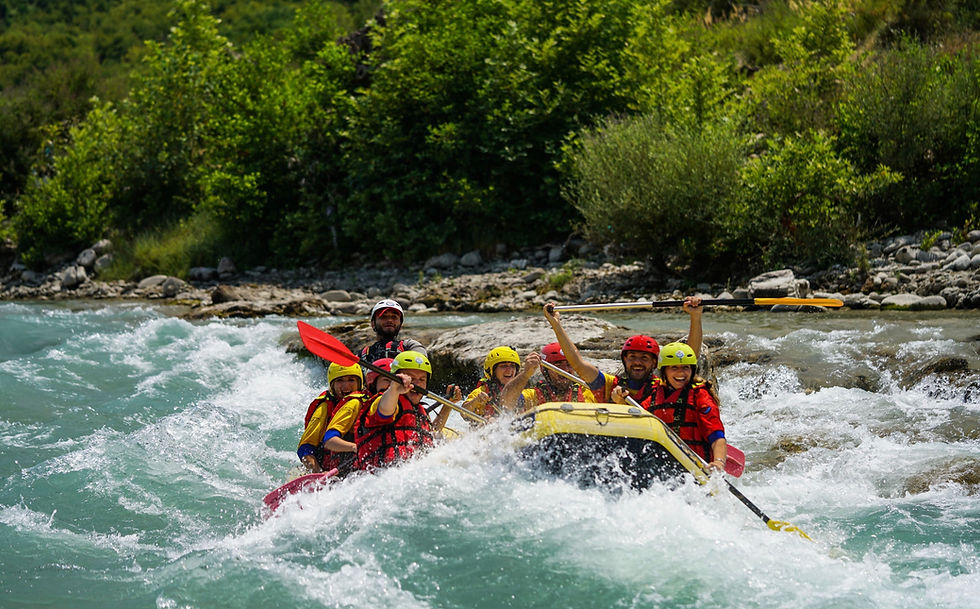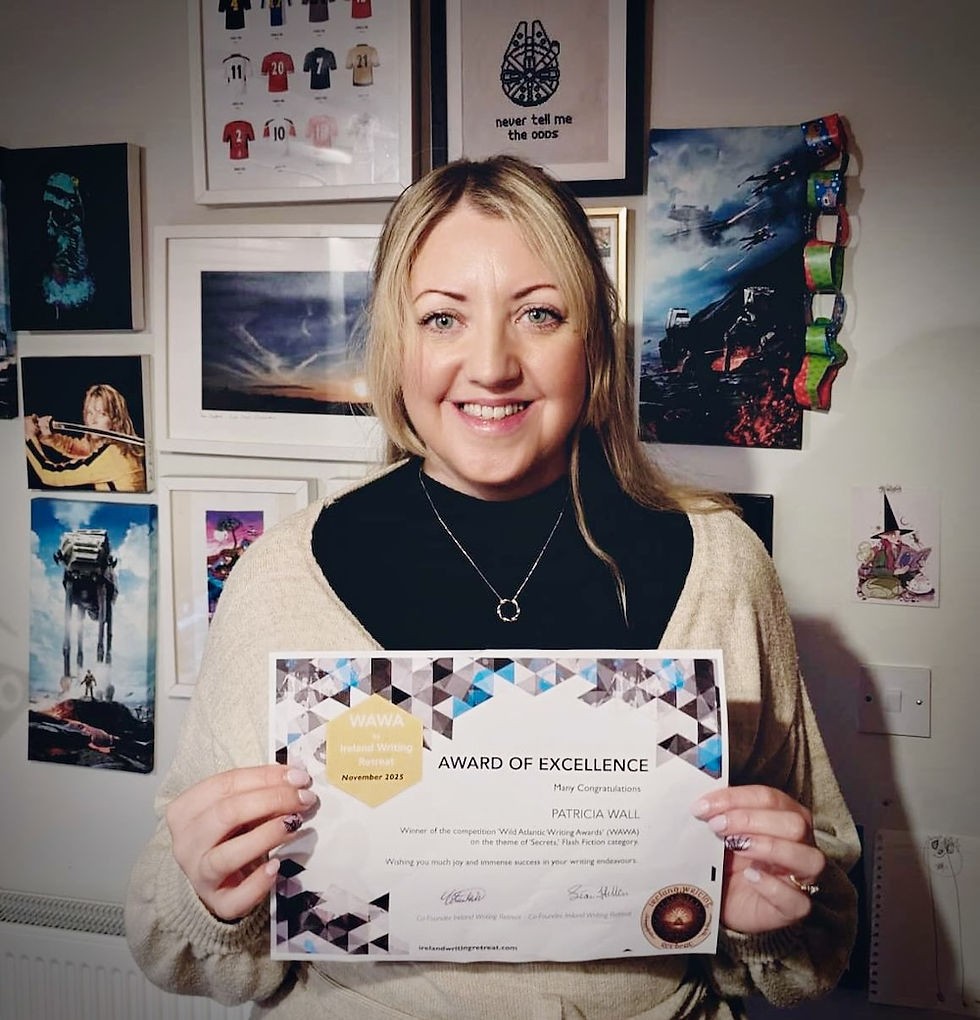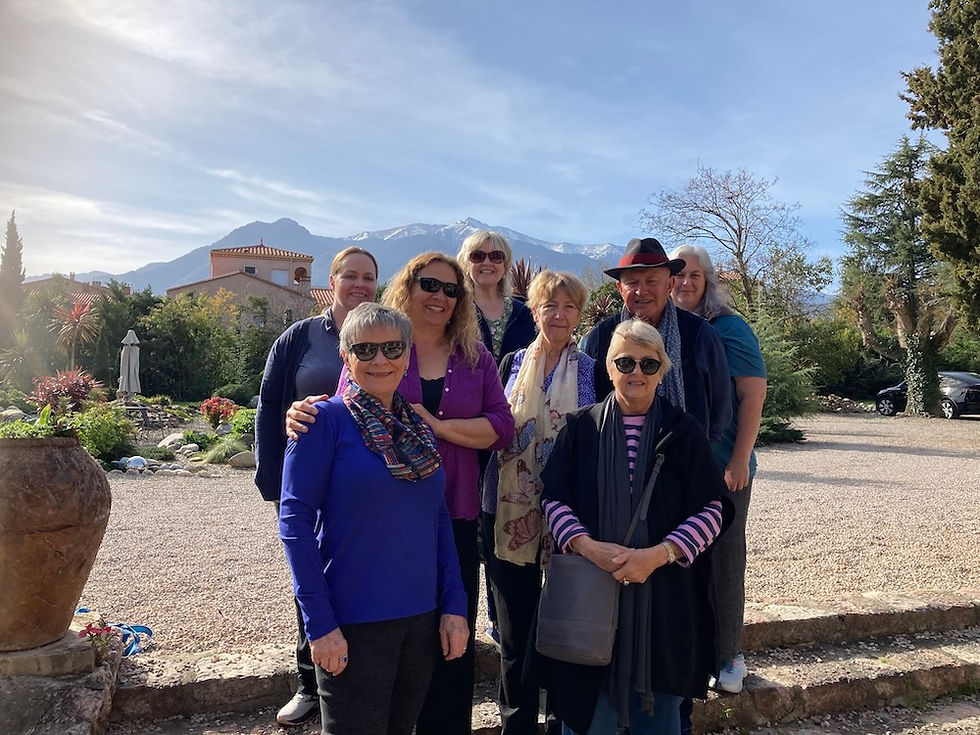Danger In Many Disguises Encapsulates WAWA Competition
- columbiahillen

- Oct 28, 2025
- 9 min read
Danger often wears many disguises: a gunman on the loose hiding in a hotel, the fury of white-water rapids or the smile of a stranger on a lonely roadside.
Three writers, Kathy Judge, Brenda Lightle and Judy Holm, used such varied scenarios to create their stories and become finalists in our Wild Atlantic Writing Awards (WAWA) competition on the theme of ‘danger.’

Brenda Lightle
A stranger’s kindness can sometimes hide menace.
For Brenda Lightle who lives near Seattle, it seemed it did.
Her finalist story Catch and Release in the WAWA creative non-fiction category emerged from an encounter after running out of gas on a highway - an encounter that carried eerie echoes of Gary Ridgway, known as the Green River Killer, convicted of murdering 49 women in the American northwest.
Brenda’s experience happened during the early 1980s. “My encounter with the stranger who stopped to help me felt eerily similar to how Ridgeway picked up his victims - similar truck, similar work coveralls. And the murderer was still at large at the time.”

“I had written a longer story entitled A Ride with a Stranger laced with details about Ridgway after reading Anne Rule’s book on the Green River murders which began in the early 1980s in the Seattle area,” she added. “But after attending ‘Ireland Writing Retreat’ in Paris, I reworked the piece. I scrapped the idea of including Ridgway and focused on my own experience and tightened up the tension. Small details helped create a sense of danger like the fishing pole jingling behind me. Working smaller to bigger was the key and my biggest takeaway from re-writing this story.”
Brenda lives in Bothell, Washington with her husband and has worked part-time as a bookkeeper in her family business but has been drawn to storytelling for years. She first discovered ‘Ireland Writing Retreat’ after searching online for a place to submit a nature-themed story about two crows. “When I saw there was a writing retreat in Paris I jumped at the opportunity. Attending it really helped me get a better understanding of how to write compelling narrative.”
Since then, Brenda has followed each WAWA competitions. “With a new theme each time and limited word count it is an enjoyable challenge,” she said.
The result was Catch and Release, a story sharpened by revision and restraint. “By God, I think I’ve finally done it,” she remembers thinking after finishing it.
Catch and Release
by Brenda Lightle

Stranded on a busy highway having run out of gas for the third time on my way to work, I turn my hazard lights on and wait for help like a young damsel in distress, knowing the drill too well.
So when a man wearing large dark rimmed glasses and work coveralls pulls up in his truck and offers me a ride, I size him up as harmless and climb in.
Sliding into the seat, I pull down on my hiked up mini skirt. Feeling leering eyes on me, I’m comforted by the black tackle box sitting between the man’s hairy hand on the gear shift and my bare thighs. Behind me, a mounted fishing pole jingles.
We take the next exit. The red and yellow gas station sign is within view, off to the right, but we take the first left to get back on the highway.
“Where are we going?”
“There’s free gas at my work, only a few miles away,”
It makes no sense, the gas station is right there, unless he has other plans. My heart starts racing as my hand finds the door handle and tightens around it, readying myself to jump but the light turns green.
Back on the highway, the fishing pole jingles louder as my mind swirls with thoughts of rape, or worse, murder.
Minutes later, we’re in the industrial side of town, a ghost town after five. Frozen in my seat with my hand still gripped around the door handle, I feel a foreign part of myself take over. Words spill out.
“I’m late for work. I’m sure my manager has already called. My mom probably told her I left at five and they’re wondering where I am.”
“You can call them on the pay phone at my work.” I want to believe him, but when we enter a gated vacant warehouse, all hope is lost. I slink back into the seat as the gate closes behind us.
Not a single car is in the lot. I feel like one of his fish caught the line, ready to be reeled in. I imagine kicking and punching him, fighting for my life.
We drive around back and pull up to a gas pump. I see a phone booth and jump out to call work. Shut safely inside, I watch him fill a red gas can while I tell my boss, “If I’m not there by six, it means I’ve been murdered.”
I hang up and see him inside the truck waiting for me. Taking this as a sign he had second thoughts and might release me, I climb in. We drive out the gate and are back on the highway and soon we’re back at my car.
Cars zoom by as he fills my tank. I offer him money, he declines. Before leaving, he looks me in the eye and says, “You should be more careful. Being stranded out here on this highway could easily get you killed.”
Judy Holm
Model, film distributor and documentary producer/writer for the last 23 years with her company, Markham Street Films, specialising in documentaries, series and feature films, Toronto-born Judy Holm has led an eventful life.
So eventful her biographical story, ‘Shootout At The Royal York,’ earned her a finalist’s place in WAWA’s creative nonfiction category.
Now a proud grandmother in her ‘70s and living in Stratford, Ontario, Judy said her story is an excerpt from a longer story called ‘Venetian Blinds’ from her memoir: ‘All The Words Want to Come Out Now.’

Re-working a shorter story from a longer one may seem easy but as Judy explains, “I had to revise it three or four times to bring it down to the correct word count. Two things were particularly challenging: avoiding getting lost in the minutiae of the fashion business and finding a good pace between dialogue and action.”
Regarding choosing a title, she added, “My story was always called ‘Shootout At The Royal York’ but the longer story went through many configurations before I settled on ‘Venetian Blinds.’ ”
Judy liked working to WAWA's 500-word limit. “Working in this format is great. I have often cut stories down to fit, thinking they could never be shortened, and they were better for it.”
Shootout At The Royal York
by Judy Holms

A siren blares out of the hotel sound system. An urgent male voice says, “This is an emergency. Lock your door and stay inside until further notice. Let no one in. This is an emergency.”
It’s September 18, 1975, 4 p.m. I’m in a suite at The Royal York Hotel, in the middle of a runway turn, dressed in a jumpsuit with wide palazzo legs in a red and black ziggurat print, red wide-brimmed straw hat, red sandals. Another model is changing into her next outfit in the bedroom. We are booked for the day to do ‘showroom’ modelling for a line of ‘holiday’ clothes. It’s the last show of the day.
The sales rep charges to the door, locks it, slides the chain across. The client jacks up in his seat, looking like a startled pug. We become a still life, the air in the room sucked up and out. What to do?
The other model and I lock eyes and nod. I complete my turn, head for the bedroom to change. She passes me, into the living room. We’re paid to do the show.
I am supposed to be at the Art Gallery of Ontario at 5 p.m. to rehearse for a big art event called Going Through the Motions. I am to lead three models dressed in gowns and headpieces made of venetian blinds, down a runway. We look like tiered pyramids.
An X of silver duct tape marks the end of the runway, the hope being that I see it and stop before we all crash down the stairs like dominoes.
At 6 p.m. at The Royal York, there is a pounding on the door.
“Police!”
The salesman checks the peephole, then flings the door open. A policeman, in a bulletproof vest, gripping a gun.
He packs us into a tight line, barks, “Follow me”, and we creep down the hall like a slow slinky toy, expanding when he moves ahead, piling into each other when he stops. At each corner, he thrusts his gun into the air then points it in front as he leaps into the next hallway.
“Clear!”
We scamper after him. At the elevator bank, he dashes across, presses the down button, then skids back to us. When it arrives, he points his gun at the open door and runs in.
“Clear!”
We slam in.
“Punch the button.” he yells at no one in particular, and keeps his gun pointed out the doors until they close.
He tells us there was a shooting at reception and they don’t know where the guy is, so
when we get down, he’ll check the lobby. If he calls ‘clear’ we run as fast as we can and exit the building.
We exit, and I keep going, running in a fog of adrenaline all the way to the AGO.
“Sorry I’m late,” I said, “There was a shootout at The Royal York, and ….”
“Whatever.” I’m cut off, “Get backstage, you’re late.”
Kathy Judge
For Kathy from Oklahoma, a near-death experience became the seed for River Wild, her WAWA finalist story in the creative non-fiction category.
“I always look at the categories posted for the ‘Wild Atlantic Writing Awards’ and the topic ‘danger’ matched this experience of mine which, oddly enough, I was happy to recollect,” she said. “I still love the idea of white-water rafting. My title alludes to the movie, ‘River Wild,’ which introduced me to the sport.”

Kathy, a high school English teacher, said her story underwent four drafts. “I like word count parameters and deadlines. Perhaps it is the teacher in me, but those guidelines help focus my editing and free me from continuing to draft. The ‘assignment’ quality of the contest is an impetus to sit down and put words on paper. Settling down to write is probably my greatest challenge.”
As for being named a finalist, “It was heartening because I had such fun composing the piece,” she said. “This kind of recognition is very encouraging. I had just turned 57, so receiving such good news was a belated birthday present as well.”
River Wild
by Kathy Judge

I am the protagonist of this story but not the hero.
My niece, two guides and I had been rafting the swollen Pacuare River in Costa Rica for two hours when we hit a series of level four rapids. My feet tucked firmly under the inflated starboard thwart were not enough purchase. I was thrown from the raft, underwater and whirling toward a rock the size of my Ford Fiesta. I am going to hit that rock with my head. My head is going to collide . . . .
But I didn’t. The eddying swirl prevented the violent slam of my helmeted head against stone. I feared a flesh-scraping slam of my left shoulder in the continued circling; however, that was not what I should have feared.
I didn’t resurface. I was pushed deeper underwater.
People die white water rafting. I am going to be one of those people who drowns on vacation! Olger will save me.
These thoughts floated in my head while I floated — rather than trying to swim — just as instructed by Olger, the safety guide, who paddled alongside us in his red kayak.
Rafting into or out of the remote eco-lodge had been the selling point for me when I planned this trip to Costa Rica. Olger was the first staff member we met. He had been with us when we zip-lined through the jungle, and he’d even been our waiter one evening. I spurged on this graduation-present trip for my niece because I have been captivated by the idea of rafting since seeing Meryl Streep’s The River Wild. My niece had been fearful most of the two hours into this four hour trip: I had been exhilerated.
But there, submerged, a stone still inches from my face and my body caught by roiling waters, I ran out of breath. Forget years of playing who-can-hold-their-breath-longest at the pool. I’d had one unconscious gasp when I bounced off the high side of the raft and it was used up.
I was divided: my mind telling me if I inhale, I will drown; my instinct, shouting “breathe.”
I’m going to have to breathe. That was the conclusion I came to and I saw red.
I popped to the surface. Olger. By the neck of the life jacket, he pulled me to the surface. Holding onto the bow of the kayak, I glided through an ironically smooth stretch of river toward the rendezvous point. He checked that I was unhurt and I checked that my niece was fine and then, looking straight ahead while paddling, rather quietly he said, “I lost you for a minute.”
There is a picture of me with Olger after we’d left the river and changed clothes. I’m in a white t-shirt with Protagonist in block letters across the front -– the kind of shirt literature teachers receive as a gift. Olger is in a resort staff shirt conspicuously missing the word Hero.










Comments